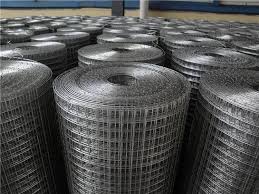Aug . 12, 2024 13:04 Back to list
High-Quality 4mm Reinforced Steel Rebar Manufacturing for Diverse Construction Needs and Applications
The Importance of 4mm Reinforced Steel Rebar in Modern Construction
In the field of construction, the use of high-quality materials is essential to achieve durability, safety, and structural integrity. Among these materials, reinforced steel rebar plays a pivotal role, especially the 4mm variant, which has gained popularity for its versatility and strength. This article delves into the significance of 4mm reinforced steel rebar, its applications, and the manufacturing process that ensures its reliability.
What is Reinforced Steel Rebar?
Reinforced steel rebar, commonly referred to as rebar, is a steel bar or mesh of steel wires used as a tension device in reinforced concrete and masonry structures. It is designed to strengthen and hold the concrete in tension, as concrete is strong in compression but weak in tension. The introduction of rebar into concrete significantly enhances its durability and load-bearing capabilities.
The Advantages of 4mm Reinforced Steel Rebar
The 4mm rebar is particularly favored for specific applications in construction due to its small diameter, which offers several advantages
1. Enhanced Flexibility The smaller diameter of 4mm rebar allows for greater flexibility during installation. It can be easily bent and configured to fit various structural designs, making it ideal for intricate architectural works.
2. Weight Efficiency Being lighter than larger diameters, 4mm rebar reduces transportation and handling costs. This can be a significant advantage in projects with budgetary constraints or where large quantities of rebar are required.
3. Cost-Effective Solutions The 4mm size allows for more economical use of materials without compromising on strength. In situations where less tensile strength is needed, opting for a smaller rebar can lead to lower overall project costs.
4. Increased Bonding with Concrete The surface of the rebar is typically ribbed to enhance its ability to bond with the concrete. This is particularly important for smaller diameters, where increased surface area ensures that the rebar effectively holds the concrete under tension.
Applications of 4mm Rebar
4mm reinforce steel steel rebar factory

Due to its properties, 4mm reinforced steel rebar is widely used in various construction applications, including
- Residential Buildings Often used in smaller domestic projects, such as foundations, slabs, and walls, where space and weight constraints are essential factors. - Brick and Block Work 4mm rebar is commonly utilized in masonry applications to provide vertical and horizontal reinforcement, enhancing stability and structural integrity.
- Road and Pavement Construction In thinner pavement surfaces, 4mm rebar can provide the necessary tensile strength while maintaining a lightweight profile.
Manufacturing Process of 4mm Reinforced Steel Rebar
The production of 4mm reinforced steel rebar involves several critical steps to ensure the material meets industry standards for strength and durability
1. Raw Material Selection High-quality steel is sourced to ensure the final product has the necessary characteristics, such as tensile strength and ductility.
2. Hot Rolling Process The steel is heated and passed through rollers to achieve the desired diameter while imparting the necessary ribbing for enhanced bonding with concrete.
3. Quality Control Rigorous testing, including tensile strength and ductility assessments, is performed on batches of rebar to ensure they meet the required specifications.
4. Cutting and Packaging Once the rebar has passed quality control, it is cut to the required lengths and packaged for distribution.
Conclusion
The 4mm reinforced steel rebar is a vital component in modern construction, providing flexibility, cost-efficiency, and enhanced structural integrity. Its applications in various construction projects demonstrate its versatility and effectiveness as a material. As the construction industry evolves, the importance of quality materials like 4mm rebar will continue to underpin the development of safe, durable, and innovative structures.
-
High-Quality Steel Grating Solutions for Industrial Applications | Durable, Safety, Customization
NewsJul.13,2025
-
Advanced Solutions-CompanyX|Enterprise Efficiency&Cost Reduction
NewsJul.13,2025
-
Sustainable Manufacturing-EcoTech Innovations|Waste-to-Energy System&Zero Emissions
NewsJul.13,2025
-
Welded Wire Mesh- Buildings Wiremesh Co., Ltd.|Durable Construction Material&Industrial Strength Solution
NewsJul.13,2025
-
Smart Production Solutions-Example Corp|AI Automation&IoT Monitoring
NewsJul.13,2025
-
Advanced Industrial Solutions-Advanced Industrial Solutions|Manufacturing Efficiency&Productivity
NewsJul.13,2025

